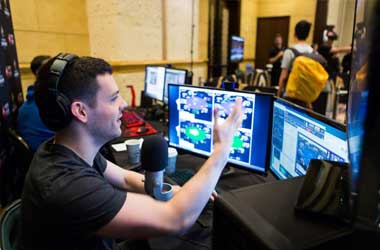 Three weeks ago, the Gujarat High Court passed an order that stated that poker was a game of chance and could not be considered a game of skill. Poker is considered an illegal game under the 1887 Gujarat Prevention of Gaming Act and the court’s ruling backed the law.
Three weeks ago, the Gujarat High Court passed an order that stated that poker was a game of chance and could not be considered a game of skill. Poker is considered an illegal game under the 1887 Gujarat Prevention of Gaming Act and the court’s ruling backed the law.
However, the fight to legalize poker is not over as the Indian Poker Association (IPA), which is based in Bangaluru, has filed an appeal on the order made by Justice Rajesh H. Shukla on December 4.
The appeal was filed by the secretary of the IPA, Kizhakke Naduvath Suresh. Suresh filed the appeal on December 26 and the same has now been officially lodged in court. The appeal will soon be vetted and then go through an approval procedure. If approved, it will go before a two-bench judge for an appeal hearing. With the end of the month approaching, chances are that the appeal will start to go through only during the New Year.
This appeal is just one of the 11 possible appeals since there are 11 other parties that the Judge Shukla ruled against in his decision. On December 4, Judge Shukla stated that based on the evidence he had seen, poker did not involve a substantial level of skill. This meant that it fell under the original 1887 Gujarat Gaming Act. Combined with the recent bill passed by the Telangana state legislature to ban online gambling, it has been a bad time for poker enthusiasts in India.
The original decision was made after months of hearings. The hearings and decision were a greatly focused on by the developing poker, rummy, and skilled based gambling industry of India. Suresh states in his appeal that this decision was too important and should not have been left to a single judge. He remains confident that the decision would be overturned and poker will be recognized as a game of skill.
The case originally started a year ago when the IPA sought intervention from the Gujarat High Court to allow for peaceful conducting of poker games in the region after being harassed and raided by the police. They pointed to the precedents laid in Nagaland and West Bengal that exempted poker and rummy as games of skill. This guaranteed their playing as part of pursuing free trade and commerce under Article 19 of the Indian Constitution. However, the court’s ruling has prevented these poker clubs from operating in Gujarat.






